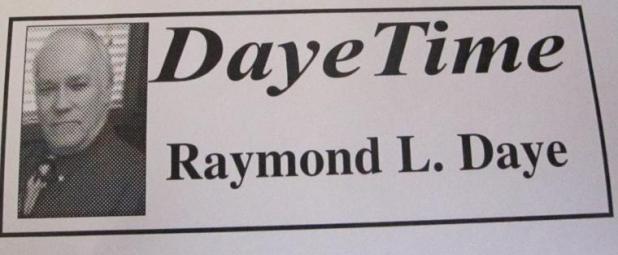
DayeTime: Be proud of your French heritage
I am not of French ancestry, but my wife, children and grandchildren are. For that reason, I am quick to defend the Louisiana French from derogatory and erroneous slanders.
I don’t find exaggerated “Cajun” accents, with the many grammatical errors and mispronounced words, funny. I am not a fan of “Cajun” humorists or “Boudreaux and Thibodeaux” jokes.
I have always questioned the validity of the explanation that so many Louisiana names end in “X” because the original Acadians were illiterate and made an “X” behind their names printed on legal documents.
It smacks of some non-Gallic pundit trying to find a convenient answer to a question. Is it a coincidence the answer just happens to paint the French settlers as illiterate bumpkins?
I would expect illiteracy was widespread, but no more among the French-speaking than the English-speaking populace.
There is no “anti-defamation league” for French Louisianians. Maybe there should be.
I’ve said since I was young that Southerners, as a people, should take legal action against Hollywood for its portrayal of all Southerners as either evil, corrupt racists or good-natured but slow-witted buffoons.
Cajuns take a worse public image beating than most other Southerners.
There are some in Avoyelles who say they are Cajun. A few say the more proper term is “Creole” -- a word that meant a French colonist who was born in the colony.
“Creole” is also a word that means something different today than it did back in the 1700s.
If a Creole is a person of French ancestry born in the colony that would also apply to the Acadians, whose ancestors came from France and settled in a different French colony.
A better differentiation -- if one needs to be made -- would be “Louisiana Colonial French” for those whose ancestors arrived in this state directly from France, Acadian French for those who trace their roots back to exile from Nova Scotia, and Canadian French for those who came here from Canada later.
It doesn’t really matter because in the eyes of others, they are all tarred with the same brush -- a punchline to a Justin Wilson routine.
A quick Google search found a more likely explanation for the Cajun “X” mentioned earlier.
Back in 1999, Dr. Carl Brasseaux noted that when the U.S. acquired Louisiana in 1803 and even after it became a state in 1812, there was no standardized English spelling of French names ending with the long “O” sound.
He said Judge Paul Briant was given the responsibility of conducting the 1820 Census in Louisiana and is most likely responsible for the “eaux” spelling of many French surnames in the state.
Brasseaux said there were about 12 ways to spell “O” names, so Briant went with “eaux.”
Brasseaux is a retired professor of history at UL-L and author of numerous non-fiction books on Louisiana and the Cajun people, as well as several fiction books.
In that 1999 article, Brasseaux said French Louisianians contribute to that faulty perception of ignorance by imitating “the stereotypes the rest of America and much of the world have come to expect. This happens especially when the movie cameras show up.”
Making other ethnicities the butt of jokes is so prevalent that it can almost be classified as “natural.”
That doesn’t make it right, nor does that mean it should be deemed acceptable.
So, if you are of French heritage and someone breaks into a mock Cajun accent about Boudreaux and Thibodeaux, you are well within your rights to stop them in their tracks, tell them you find that brand of humor offensive and walk away if they disregard and disrespect your wishes.
Just ask them if the joke would still be funny if the two slow-witted subjects were named Jackson and Johnson?
If the answer is “No,” there you go. It’s not the joke that people want to laugh at, it’s the Cajuns in it.
If enough people object and walk away often enough, maybe this kind of “humor” will disappear.
